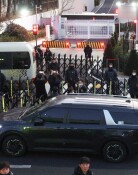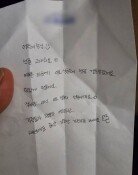Teacher Evaluation System to Start From March
Teacher Evaluation System to Start From March
Posted December. 23, 2009 13:48,
The teacher evaluation system will be implemented at all schools in Korea from March, and merit-based pay will also be instituted for professors at national universities.
The Education, Science and Technology Ministry Tuesday reported its strategy and plans for next year to President Lee Myung-bak at the National Research Foundation in Daejeon.
If the bill on the evaluation system passes the National Assembly at its extraordinary session next month, the ministry said it will immediately draw up an enforcement degree. If the bill is rejected, new rules in each city and provincial educational office will implement the evaluation system.
The evaluation system is undergoing trial operations at 3,164 schools (30 percent) in Korea.
The ministry will also introduce autonomous organizational and personnel management and merit-based pay to 40 national universities, including those of education and technology, from the second half of next year to enhance competitiveness.
Professors at national universities will thus have to remain competitive like their counterparts at private universities to get pay raises. More state assistance for research will go to outstanding holders of masters and doctoral degrees as well as to those with newly minted doctorates.
Measures to reduce private educational spending will continue next year. Educational Broadcasting System, or EBS, will feature many renowned lecturers on its programs and present them in a way that is more helpful for preparation for the college entrance test.
The number of English classes at elementary schools will be raised to reinforce public English education. The ministry will also expand the share of English conversation used in English classes at middle and high schools and the English section of the college entrance exam to stress the learning of practical English.
The share of English listening comprehension questions on the college entrance exam in 2014 will increase from 34 percent to 50 percent. The ministry decided to readjust the scope of the English section for the college exam in 2014 under a revised education curriculum confirmed recently.
In science and technology, the Research Institute of Basic Science will be set from next year and the Korea Rare Isotope Accelerator will also be designed. The International Science and Business Belt, which the government wants to attract to Sejong City, will become a cluster of education, research and industry.
The government wants to turn the place into an R&D hub with the worlds best minds by attracting businesses and Korean and foreign universities.
The second launch of the KSLV-I is set for the first half of next year. The rocket will launch into orbit Communications, Ocean and Meteorological Satellite, or COMS, which can shorten the time for meteorological observation from 30 minutes to eight minutes, and Korea Multi-Purpose Satellite 5, or KOMSAT 5, which offers video data of a place as close as one meter even in bad weather or at night.
The ministry will seek to export research-oriented reactors and develop SMART, a small and mid-size multipurpose reactor that can supply electricity and water resources to a city of 100,000 people by 2011.
foryou@donga.com uneasy75@donga.com







